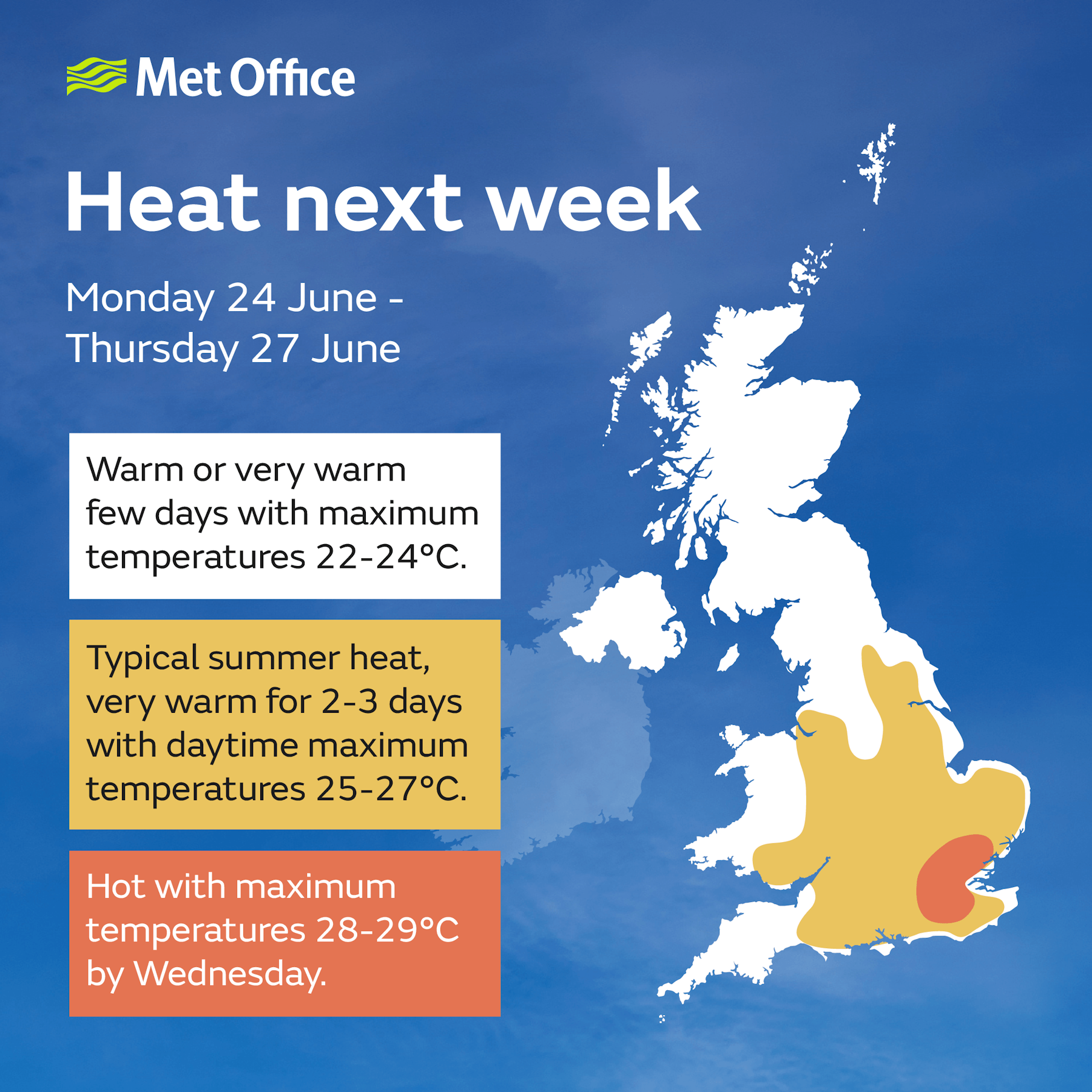Summer warmth in the forecast
Author: Press Office
13:20 (UTC+1) on Thu 20 Jun 2024
With fine and settled conditions extending across the UK, forecasters are signalling the prospect of higher temperatures to come into the early part of next week.
Neil Armstrong is a Met Office chief forecaster. He said: “After a brief, less settled, interlude on Friday and Saturday, fine conditions will return by Sunday and into next week. For much of the UK this will be accompanied by a boost in temperatures with many places reaching the mid-20°Cs by the middle of next week.
"Some central and southern areas are likely to see temperatures approaching the values needed for heatwave conditions. Heatwave conditions need to remain in situ for three consecutive days, and by the middle of next week it is possible that some parts of the UK could be reaching heatwave thresholds.
“However, whether or not everyone experiences heatwave thresholds, the majority of the UK will experience the finest conditions and highest temperatures so far this year.”
Western areas will be affected by an approaching weak weather front on Friday and Saturday. This will bring some wetter conditions to northwestern Scotland.
Although there is a chance that some isolated weather stations could record 30°C around the middle of next week, overnight temperatures will be lower, providing some respite for those who struggle with hot conditions.

Staying safe in the sea and the sun
Samantha Hughes, National Water Safety Partner at the RNLI said: “The forecasted warm weather will mean we’ll see more visitors at the coast and we always want people to enjoy themselves safely.
“Entering the water during warm weather can increase the risk of cold water shock due to the sudden changes in skin temperatures. Enter the water gradually and avoid jumping or diving straight in to reduce your risk of cold-water shock.
“If you’re planning on heading to the beach, we highly recommend you visit one that is lifeguarded and you swim between the red and yellow flags. This is the safest area and is most closely monitored by lifeguards.
“If you get into trouble in the water, Float to Live. Tilt your head back with ears submerged and try to relax and control your breathing. Use your hands to help you stay afloat and then call for help or swim to safety if you can.
“In an emergency at the coast, call 999 or 112 and ask for the Coastguard or ask for the fire service if you are near inland waters.”
Stay up to date with the forecast
You can find the latest forecast on our website, on YouTube by following us, on Twitter and Facebook, as well as on our mobile app which is available for iPhone from the App store and for Android from the Google Play store





